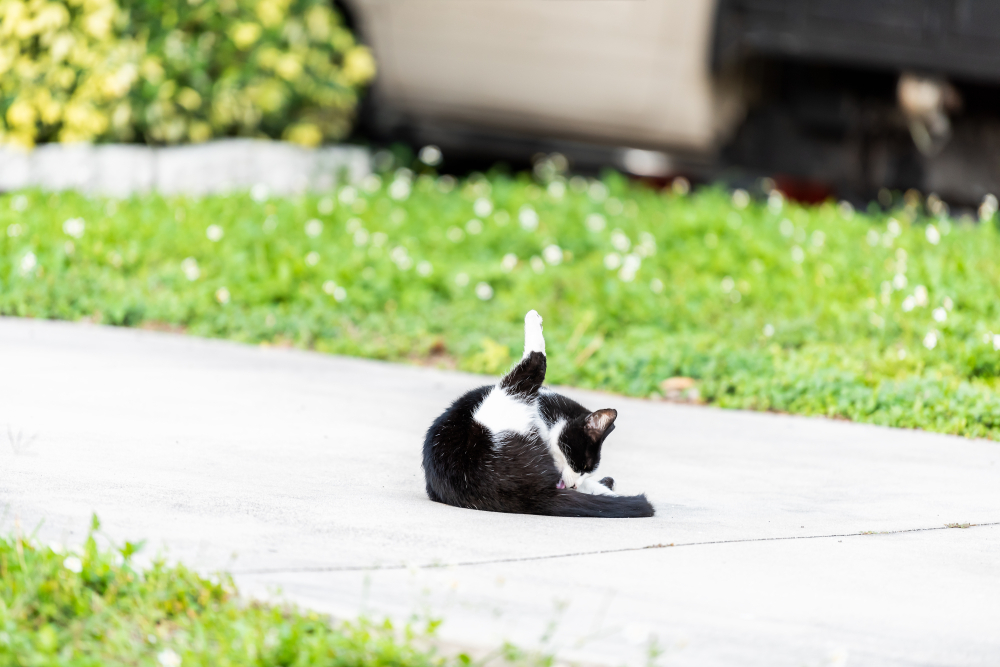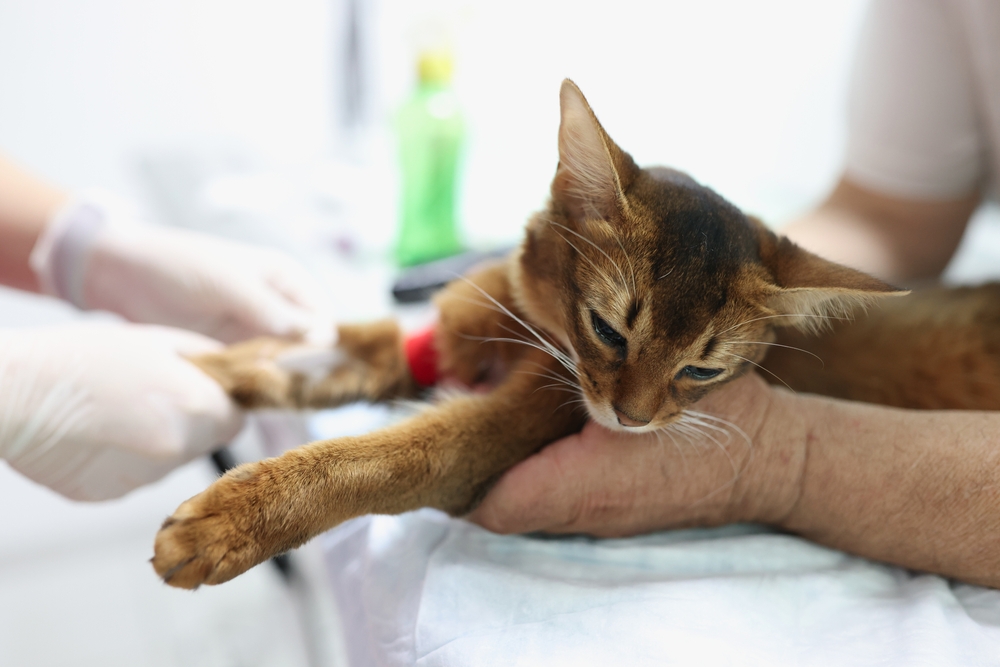Anal glands are small sacs located near your cat’s anus, and they play a key role in marking territory and communicating with other animals. However, they can also be a source of discomfort or health problems if not properly cared for.
1 – What Are Anal Glands?
Cats have two anal glands that secrete a foul-smelling fluid. These glands are located on either side of the anus and are used for marking territory and communicating with other animals. The fluid inside these glands is usually released naturally when a cat defecates.
2 – Signs of Anal Gland Issues
If your cat’s anal glands become impacted, infected, or inflamed, they may exhibit the following symptoms:
Scooting or dragging their rear on the ground
Licking or biting at their anus excessively
Difficulty or pain when defecating
Foul odor around their rear end
3 – Causes of Anal Gland Problems
There are several reasons your cat might experience issues with their anal glands:
- Blockages: The glands can become clogged if the fluid doesn’t naturally express during defecation.
- Infections: Bacterial or fungal infections can develop in the glands.
- Abscesses: If the glands become severely infected, they can form abscesses that may rupture.
- Diet and Weight: Cats that are overweight or have a poor diet may be more likely to experience anal gland problems due to reduced natural expression.
4 – How to Prevent Anal Gland Issues
- Diet: Feed your cat a high-fiber diet, which can help promote regular and healthy bowel movements, aiding in the natural expression of the anal glands.
- Maintain a Healthy Weight: Keeping your cat at a healthy weight can reduce the risk of anal gland issues.
- Regular Check-ups: During routine vet visits, have the vet check your cat’s anal glands for signs of problems.
5 – What to Do if Your Cat Has Anal Gland Problems
If your cat is showing signs of anal gland discomfort, it’s essential to consult a vet. The vet may:
- Express the Glands: If the glands are full or impacted, the vet may manually express them to relieve the buildup.
- Treat Infections: If there’s an infection, the vet will likely prescribe antibiotics or other treatments.
- Surgical Removal: In severe cases where anal gland issues are recurrent, the vet might recommend surgical removal of the glands.

6 – Should You Express Your Cat’s Anal Glands?
Some cat owners may consider expressing their cat’s anal glands at home, but this should only be done under the guidance of a veterinarian. Improper handling could lead to injury or infection.

